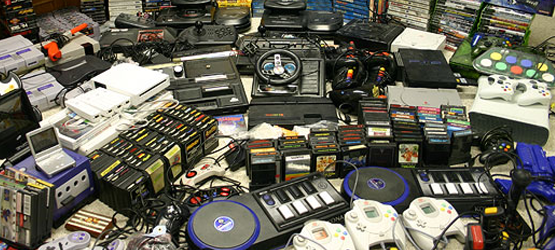
With the number of options available to gamers when it comes to gaming peripherals growing year by year, the Daily Reaction crew is asking the question, are accessories worth it? Will simply adding on more and more high end plastic optionals improve our ability to be integrated into virtual worlds or are they just a marketing tool to get consumers to pay top dollar for things they don’t need?
Dan: Having done numerous hardware reviews across multiple types of devices, I’ve seen a great number of comments about how pointless it is to purchase premium gaming hardware and this is something I simply have never understood. With many gamers spending a significant amount of time doing a specific hobby, why not make the most of that experience?
Gaming headsets or a quality sound system have become some of the things I have started to notice that many gamers simply chose to ignore, even though their ability to profoundly improve someone’s experience can’t be understated. More often than not, people tend to spend a great deal of money on a television, and little else, leaving them to have a great visual experience but a lacking auditory one. Much like purchasing a giant 1080p television, but ruining it by continuing to use composite cables, an experience is made up not by a single adjustment, but by making sure each step is done correctly.
Regardless of what you play, short of a handful of smaller titles, improving your audio can drive your experience miles ahead of what it was no matter how big your television is. While some people will have differing issues when it comes to being able to utilize sound, whether it is thin walls, or simply cost, there are many options out there that can fit the bill and at the very least give gamers something to work with. Not everyone will need to spend $300 on a gaming headset, but at the same time, if you think you are getting a comparable experience using a pair of $20 ones, you may need to get your hearing checked.
Related Reading:
- Gaming Accessories – The Good, The Bad, and The Ugly
- Top 5 Worst PlayStation Accessories
- Versus – Project Morpheus vs. HoloLens
Beyond some of the gaming “necessities,” there are many gaming options out there that let players play how they want to. Going all the way back to the early days of gaming, joysticks were a feasible option for gamers to play just about any game and get an arcade experience, but now, that is something that is mainly reserved for the fighting game genre. The same can also be said for racing wheels, which are also giving players the option of re-creating an arcade experience at home. Which is another factor that I don’t think should be ignored, as the ability for pure immersion is something that I think the industry is striving for as we move forward.
Looking at what each of these optional accessories do for players, it is easy to see that everything’s derived to help immerse gamers into the moment. Having a completely virtual hobby, it’s sometimes easy to forget that very little of what we can do is tangible. While audio and visual cues can help sweep us away, the ability to have something to touch or use in the real world beyond a standard controller helps pull a virtual world into the real one.

Chandler: While Dan examines the peripherals that enhance multiple existing experiences and can be used for nearly any application. Headsets can be used for any game to enhance the experience. Racing wheels can be used with racing games. Arcade sticks can be used with fighting games. These are peripherals that are designed to enhance an already existing experience. But what happens when we look at peripherals seeking to create new experiences.
You can’t just apply the PlayStation Move to any game like you can plug in a headset for any title. Move titles need to be specially designed to utilize the peripheral’s functions (or hastily patched in to showcase lackluster support for a title that was not designed to use it in the first place). Right now, Move hardly enhances any experience, and most of the titles designed for at are gimmicky at best. The one place where Move promises to shine is in conjunction with Morpheus, which is yet another peripheral that doesn’t enhance an existing experience, but rather demands all new ones.
I’m not saying it’s bad for a peripheral to demand an all new and exclusive experience. In fact, I think that Morpheus and VR will highlight the point that peripherals are required to really evolve and enhance our current knowledge of gaming experiences, which has admittedly begun to grow a little stale — just look at the flood of re-releases, remasters, and reboots as the industry struggles for fresh ideas. It’s going to take a literal game changer to refresh the industry and push the boundaries forward.
We’ve already had a proven experience with peripherals that had little use outside of their intended application: plastic instruments. Just look at how successful those peripherals were because of the way they uniquely changed the way we play. The peripherals demanded a unique experience be crafted for them, and in turn, the experience the developers were going for required a unique peripheral. It’s a massive gamble that ultimately paid off, and looks like it will pay off again later this fall.
Are peripherals important? Only as important as the experience that you want from gaming. Improved audio is important to Dan with his headsets, where I prefer a surround sound approach. Not that I don’t love a good headset, but I love the open feeling of surround audio. I’m excited for VR because of what it will do for our gaming experience. I hate to admit that I love plastic instruments for the unique and different experience it offers. Peripherals are important to pushing the limits beyond the standard game/controller experience we know, and while some of them are complete duds, some change the face of games as we know them.
Which gaming accessories do you think are important? And which do you think are a waste of money? Let us know in the comments below, email us at DailyReaction@PlayStationLifeStyle.net or check us out on Twitter @Foolsjoker and @Finchstrife.
Check out more of us reacting daily on Daily Reaction here.
Daily Reaction: The Slideshow
-
Are Villains Really the Star of the Show? – The Joker, Call of Duty and Until Dawn

A great hero is nothing without an opposing force to drive him, her, or it forward, and we explore the villains, antagonists, and foes in both likely and unlikely places.
-
PS Plus Vote to Play – Are We Generalizing Indie Games?
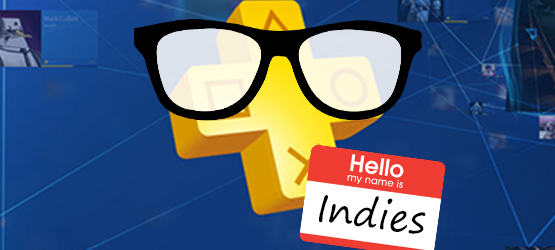
The term "indie" has been slung around the industry to mean low budget garbage, but are we being unfair to a subsection of the industry that leads in innovation and creative freedom?
-
How Sharing Is Changing the Industry – PSN and the Share Button

The ability to easily share our experiences has vastly changed how we game and how the rest of the world perceives video games. Just how much is sharing changing the gaming landscape?
-
Cracking Down on Xbox One Cloud Computing
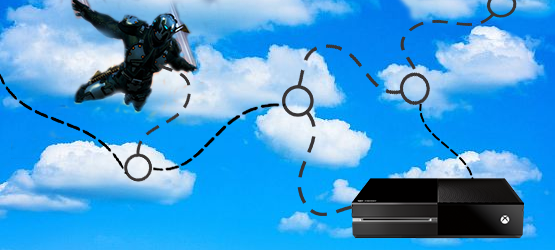
Despite the punny title referencing Crackdown 3, we actual drool over the possibilities that the cloud can offer as Microsoft shows off their latest footage featuring multiple servers worth of full destructibility in the world, while we also cite some minor concerns we may have with the tech.
-
Microsoft’s gamescom 2015 Press Conference Impressions

Microsoft finished their 2015 press conference at gamescom and it was a solid showing. Here are our blow-by-blow impressions of what Microsoft had to show off.
-
Guitar Hero Live and Rock Band 4 – Rhythm Games’ Encore
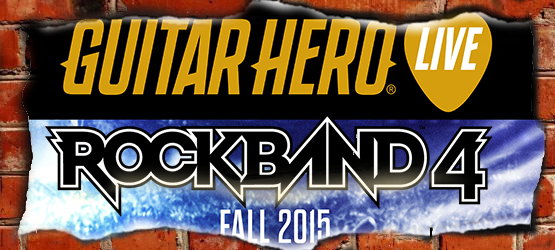
Rhythm games are coming back, but do gamers want the encore? Find out more about our history with the genre and what we are (or aren't) looking forward to when plastic instruments make a comeback.
-
Can a PlayStation Plus Voting System Make Gamers Happy?

Trying to appease unhappy gamers, Sony is giving them a choice to vote on the free Plus games for certain months. Will gamers still find a way to complain, or will this help ease the pain of feeling slighted by "bad offerings?"
-
Ouya’s Downfall and the Home Console Market

R.I.P. Ouya. We hardly even knew ya. In this edition we throw back all the way to the first Daily Reaction that talked about the Ouya and how it might be able to alter the gaming landscape. Have our views since then changed?
-
Are Gaming Accessories Important? VR, Fight Sticks and Gaming Headsets

Peripherals such as headsets, VR, plastic instruments, and motion wands can alter the way that we experience games, but are they required or even important to the gameplay experience?
-
Console vs PC: Rounds 1 and 2
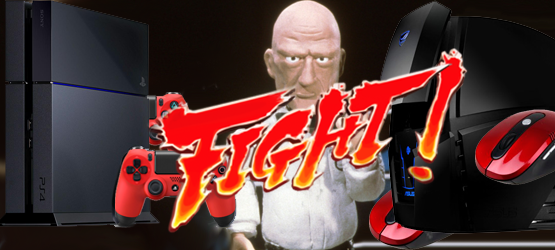
Read the Daily Reaction Part 1 here.
Read the Daily Reaction Part 2 here.Console gamers and PC gamers often butt heads on which is better, but which one is truly the victor? We examine the pros and cons in multiple aspects of these platforms in this two part article.
-
Kickstarting Shenmue III, Broken Age, and More – Money Where Your Mouth Is

Kickstarter is a platform that can be used to gauge market interest by requiring consumers to put their money where their mouth is. Is this a good home for games that are demanded, but may not be financially viable?
-
How Important Is 1080p and 60fps and Overall Graphical Fidelity?
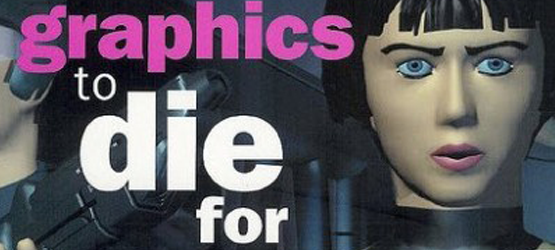
Graphics and visual fidelity are a massively debated factor in games, with some people attributing a high value to the magic numbers of 1080p and 60 frames-per-second. Is there a point where visual fidelity just isn't as important as other factors?
-
Clamoring for Information: The Desire to Know More
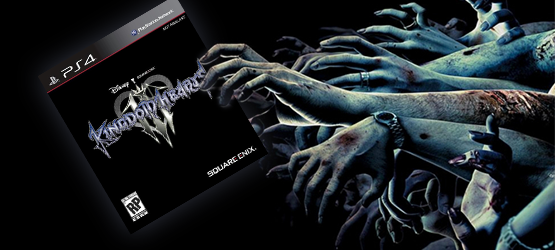
We're constantly pawing at any new bit of information that we can find out about games, but the information ebbs and flows in our industry. Does our desire to know more cause releases to be little more than a flash in the pan?
-
Remembering Our Giants – The Loss of Nintendo’s Satoru Iwata
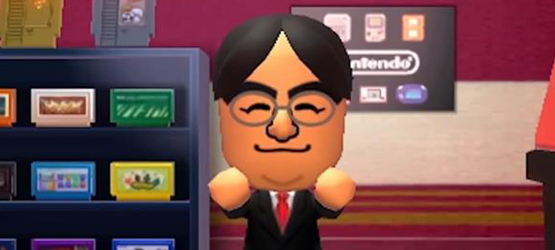
Nintendo's President and CEO has passed away, which makes us realize the fragility of life and relative infancy of the gaming industry.
-
A Dangerous Minefield of Video Game Spoilers

There are certain parts of an experience that hinge on the unknown, the mystery, and the surprise. Metal Gear Solid 2 swapping Snake out for Raiden? Aeris' fate in Final Fantasy VII? These are just a small sampling of the kinds of things that can have an impact if they are spoiled prior to a first experience and we're looking at how the unknown crafts a sense of wonder.
-
PSN Down - Does it Matter?

So the PSN is down again. Maybe not right now, but if history has taught us anything, it's that Rome wasn't built in a day and the PSN goes down periodically. Does the loss of our network connection really matter that much though?
-
The Last of Us 2: What We Want and What We Don't

Nolan North has seemingly outed the existence of The Last of Us 2, and while Naughty Dog and Troy Baker both claim ignorance, we wanted to share our conflicting thoughts on what we want and what we don't want in a sequel to one of the greatest PlayStation games ever.
-
How Technology Will Push the Horror Genre Forward
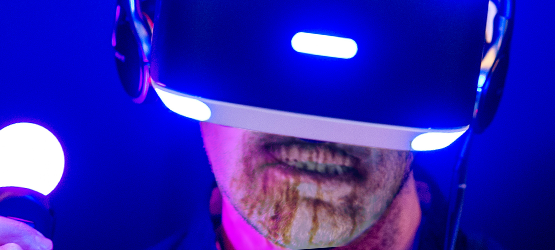
P.T. may be a distant memory, but new and coming technologies could change the face of horror games as we know them, allowing for fresh and immersive ways to be scared.
-
How Early is Too Early to Announce a Game?

When should developers and publishers reveal their games? Can the strategy for timing between reveal and release impact a game's development and sales performance?
-
Has Nintendo Stepped Down From the Big Three?

Nintendo, Sony, and Microsoft have long been considered the "Big Three" in the console games market, but has Nintendo abandoned their seat at the table?
-
Is Backwards Compatibility Forward Thinking?
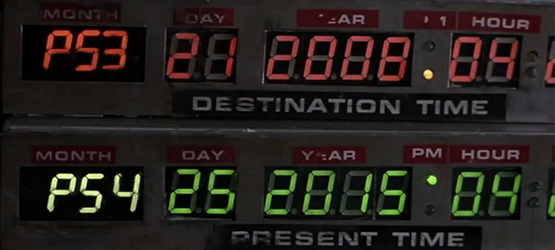
Microsoft announced backwards compatibility for the Xbox One at E3 2015, but is the time and money spent to make it happen forward thinking for the console market?
-
Oculus Rift vs. Project Morpheus - Pre-E3 Announcements
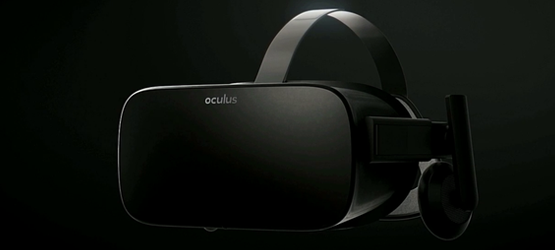
Project Morpheus and Oculus Rift are the primary contenders in the battle fro VR supremacy, and we compare the currently known specs and features.
-
Games, by Gamers, for Gamers

Many of the video game industry's biggest names are gamers themselves, and we talk about the importance of games by gamers, for gamers.
-
The Evolution of Discovery

Games have become about something more than simple high scores or arcade competition. We explore the evolution of the ability to discover in video games.
-
Countdown to E3 2015: Tips on How to Spend the Next 10 Days

The wait for E3 can be a difficult one, so we're offering you some ways that you can make the wait more bearable. Are you reading this after E3? There are still plenty of entertaining pictures to accompany each suggestion. You can't go wrong with a Reggie Photoshop!
-
The Pros and Cons of App Based Extended Content
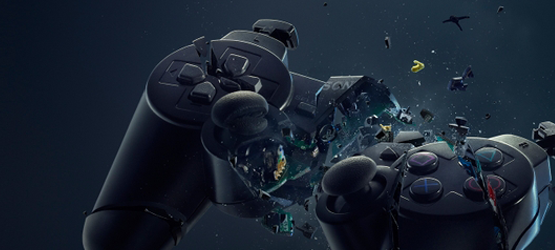
Some games have expanded beyond the screen in our living room by allowing our phones to connect with the game. Which ones are successful and which ones are unnecessary?
-
The Strategy Behind Having E3 Press Conferences
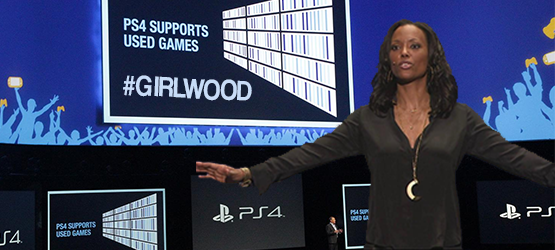
May I have your attention please? If you'll direct your eyes to the center of the stage, we'll be talking about why the major players in the industry hold E3 press conferences.
-
The Difficulties of Keeping an Embargo

As games journalists we have access to privileged information that we may not be able to reveal. Finding a balance between bringing content to our readers and maintaining positive PR relationships is crucial to our continued operation.
-
Unfair Bullying of Developers Over Game Updates

Game updates can create a stream of consciousness that a game is broken or that a developer took the lazy route during development. Is this treatment fair, or is the advancement of technology to allow for these updates an incredible thing?
-
Tempering E3 Expectations

Building up expectations to unreasonable levels can lead to disappointment when they are not met. Expect us to talk about tempering those expectations to enjoy every announcement, even the unexpected.
-
Evaluating The Witcher 3's Graphical Downgrade

Accusations of The Witcher 3 being downgraded graphically from its reveal trailer have caused a bit of a stir, and we're taking our own look at the claims.
-
The Adventures of Dynamic and Static Storytelling
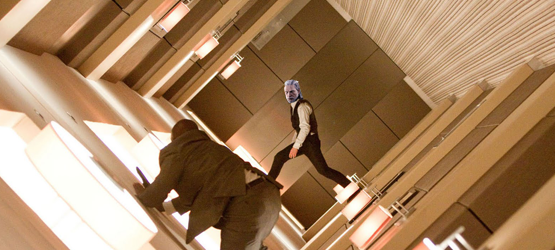
Dynamic storytelling allows for more player freedom, but limits the kind of story you can tell. Static Storytelling let's creators have control of the story, but is an on-rails experience for players. Which is preferred?
-
Reigniting Destiny's Fire with House of Wolves

Did Destiny's second expansion reignite a fire that was snuffed out by The Dark Below?
-
Why Microsoft has the Right to Brick Consoles

Do you ever read the terms of service? perhaps you should start, because we're looking at why companies may have the right to lock you out of content you think you own.
-
Always Online - The DRM Compromise
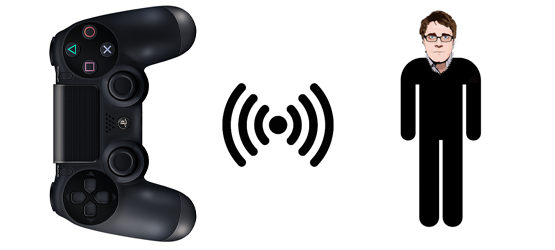
Advancements in technology are giving us increasingly connected worlds in our games, but are online components just hiding Digital Rights Management?
-
The Value of Gaming - How Much is Your Time Worth?

We spend a lot of money and time on our favorite hobby, but how do we measure the value of the money and time we spend on the games that we play?
-
The Backlog Problem
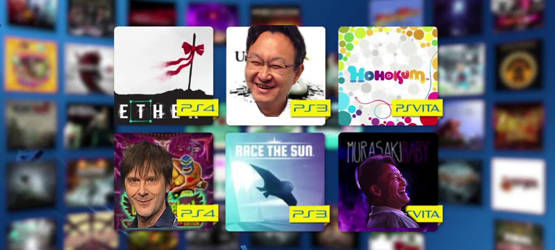
More and more games are coming out, more than we have time to play. With the rising number of games, there is also an increase to games that we want to play. Do we go back, or do we leave them behind?
-
Narrative vs. Experience - How are the Best Stories Told?

Would you rather be told a story or experience it for yourself? Is there a balance in a game telling you about a narrative point versus playing through it?
-
What Makes a Perfect Star Wars Game?

Everybody loves a good Star Wars game, but what makes the best Star Wars game? We take a stab at what we want to experience and what combined elements would bring balance to the Force.
-
Has PlayStation's Powers TV Show Failed?

Numerous mixed reviews and a lack of solid marketing have left the critical future of Powers in limbo. Though there will be a season two, we explore whether the series has already failed in its intention to bring a streaming exclusive to the PSN.
-
Information Leaks - Do They Hurt the Industry?

Games are a huge endeavor, and as such, information is not easy to contain. If something gets leaked outside of marketing's planned strategy, how does that impact the developer, publisher, and the rest of the games industry?
-
HD Remastered Edition - Does Recycled Content Hurt the Industry?

Daily Reaction is back in a new form, and our first post is talking about HD remasters and the trend of making what's old new again. Should we be living in an HD version of the past?








